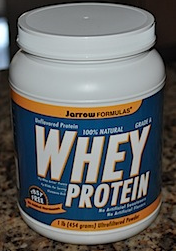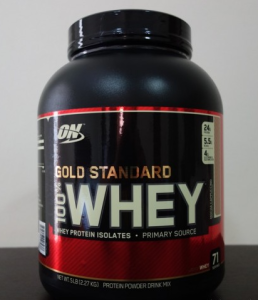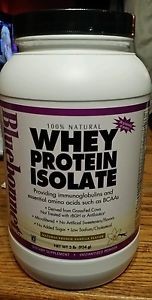Do you work out in a gym or in your home on a regular basis? Have you ever looked into using protein powders and shakes? For the past few years, there have been many protein brands that have been sold to motivated athletes and bodybuilders. Most of the top protein powder brands such as Gold Standard, Blue Bonnet, MuscleTech have been non-organic. There are many people who don’t truly know the difference between the organic and non-organic products.

Whether a product is healthier or not based on if it’s organic or non-organic is based on what the consumer believes is best for their own body. There have been many tests and experiments on the organic and non-organic protein powders out there, and based on the results, one can now understand what the true differences are.
For the purpose of this article and experiment, the study was conducted on whey protein products since there was an abundance of brands and individuals that stated how popular it was in their protein diet. Whey protein is a very good product to study when it comes to the differences between organic and non-organic because 20% of whey usually comes from cows. When it comes to the non organic brands, what makes it healthy or not is based purely on the health, diet and lifestyle of the cow. Organic brands have certified milk products, which means that their milk is of better quality than those of the non-organic brands.
Following this study further, the organic whey protein has the following:
- No artificial sweeteners and flavors
- No soy and soy lecithin
- Minimally processed and doesn’t use heat or acid in the processing method.
- Comes from certified organic cows that had organic diets without any extra antibiotics or hormones injected into their bodies.
- Certified by the American Humane Association
Now for the non-organic whey protein observations:
- May have artificial sweeteners and flavors
- May contain soy and soy lecithin
- May be processed with heat or acid which destroys the protein molecules and strength of the protein itself.
- May not be made or certified in the USA which means lower work quality standards from other countries.

All in all, the major difference between non-organic and organic whey protein brands is that type of quality they produce in their proteins. The quality comes from the health of the animals being used to take the protein. If you want to have a healthier protein powder in your lifestyle and diet, you should be more open and aware of the brands you buy from. If the brand is not 100% open with crediting how their products were created, you should think twice about how trustworthy and safe they are. The moment you become more open about knowing what you put in your body, the more healthier you’ll be mentally and physically. If you would like some suggestions or more tips on this topic, feel free to visit the web and see what others are saying about the products you are consuming!

“I personally used to use Gold Standard but after reading about the organic products, I switched to a brand names Jarrow. It’s honestly up to the person to determine if they see any results when comparing different brands of protein powders. I like the organic products better because I feel more healthy inside and every time I work out. I’d recommend organic over non-organic products anyway because it’s proven to be healthier,” Alex Santiago said.
“I have always used organic protein powders. They are certified and more healthier than the other non-organic brands. I’ve gained almost 5 pounds in muscle using the organic things in my diet. I am a small guy so it definitely worked for me!” Neel Persaud said.
A few of the top non-organic brands are Gold Standard, MuscleTech, and Bluebonnet. If you would like to go fully organic, you can patronize Jarrow and Now Foods, which have been a few of the up and coming organic brands in 2015. Stay aware of what you are buying and consuming. Protein is good for the body as long as you take it safely and know what you are using!

































